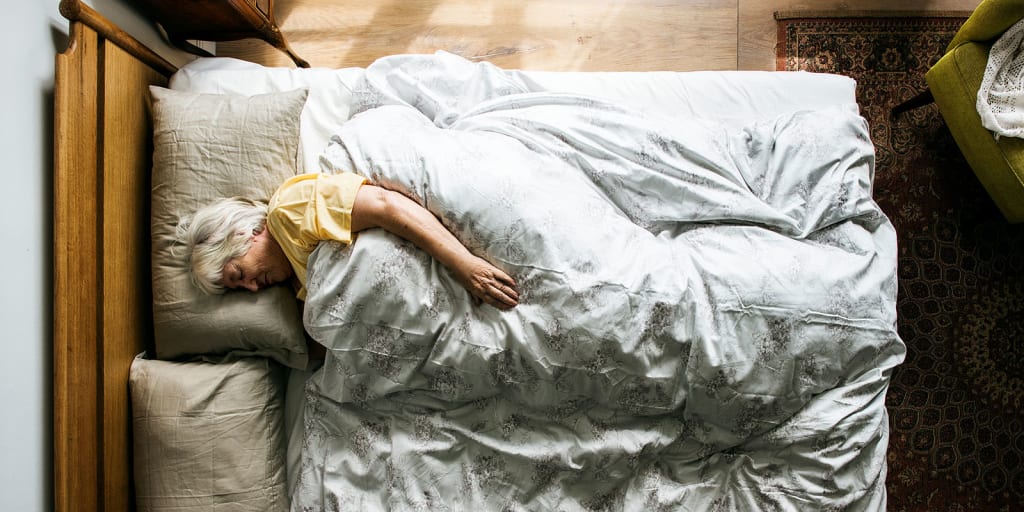How to Get More Sleep
Restructure your day for more rest at night

Sometimes it can be hard to fall asleep at night, especially if you're stressed, caffeinated, or playing Candy Crush.
While it's normal to have occasional trouble falling or staying asleep, struggling every night could indicate that you have a sleep disorder like insomnia.
Fortunately, there are simple ways you can easily manage your sleep schedule, and get back on track to higher-quality rest.
Check out the infographic below for hacks that will help you rebuild and reorganize your daily routine to optimize your sleep. From the minute you wake up to the minute you turn out the lights at night, there are simple things you can do to improve your sleep at night.
The Causes of Insomnia
There are many factors that play a role in your ability to fall asleep easily, including:
- Chronic pain
- Medications
- Mental health disorders
- Obesity
- High blood pressure
- Dementia
- Other health conditions
- Lifestyle
The following specific health conditions have been linked to insomnia:
- Chronic pain
- Diabetes
- Heart disease
- Asthma
- Alzheimer’s Disease
- Dementia
In addition, these medications could make it hard to fall asleep:
- Alpha-blockers
- Beta-blockers
- Corticosteroids
- SSRI antidepressants
- ACE inhibitors
- ARBs
- Cholinesterase inhibitors
- H1 antagonists
- Specific supplements
- Statins
When it comes to your lifestyle, there are many things that could be affecting sleep. These include the amount of sunlight you receive, social time, regular exercise, irregular sleeping hours, and significant stress.
The Symptoms of Insomnia
While there are many symptoms of insomnia, there are three important indicators that you may be living with insomnia.
- Trouble falling asleep at night
- Trouble staying asleep at night
- Feeling tired and unrested when you wake up in the morning
In addition, these secondary symptoms could be signs of a sleep disorder like insomnia:
- Frequently waking up too early
- Feeling fatigued and low-energy
- Sleepiness during the day
- Feeling the need for more than one nap per day
- Trouble concentrating on tasks
- Irritability and agitation
- Impulsivity and aggression
Types of Insomnia
There are two main kinds of insomnia that could be affecting your sleep: primary and secondary (or comorbid) insomnia.
- Primary insomnia occurs on its own, and is not caused by another health condition, medication, or lifestyle factor.
- Secondary (comorbid) insomnia is generally caused by a health condition, medication, or lifestyle factor.
Within these two categories are several types of insomnia you could be experiencing.
- Acute insomnia: results from a stressful life event or sudden change in medication; typically lasts from a single night to several weeks.
- Chronic insomnia: this insomnia occurs for more than several weeks, and is classified as such if the problem persists for more than three nights per week for three months or more.
- Onset insomnia: this type of insomnia makes it difficult to fall asleep, and is usually caused by a medication or lifestyle factor.
- Maintenance insomnia: this type of insomnia involves trouble staying asleep, and may be caused by another health condition like Restless Leg Syndrome.
How to Fight Insomnia
While insomnia can seem like an overwhelming presence in your life, there are ways you can manage the condition.
Many medications can help to treat insomnia, and though they should not be used without the approval and recommendation of a doctor, they can be effective in minimizing the symptoms of insomnia.
Specifically, these medications have been used to treat insomnia:
- Antidepressants
- Benzodiazepines
- Doxepin (Silenor)
- Eszopiclone (Lunesta)
- Ramelteon (Rozerem)
- Zolpidem (Ambien, Edluar, Intermezzo)
- Over-the-counter treatments
Aside from medications, other methods of insomnia treatment can be used. For example, cognitive behavioral therapy has been found to effectively reduce the frequency of insomnia episodes. There are over 7,500 certified sleep therapists in the United States who use a range of techniques to help people manage their sleep health.
There are other ways to fight the symptoms of insomnia, and encourage a normal sleep pattern. Check out the infographic below for more ways to manage insomnia and improve quality of life.





Comments
There are no comments for this story
Be the first to respond and start the conversation.